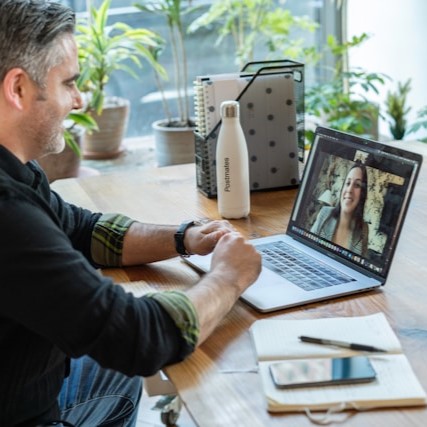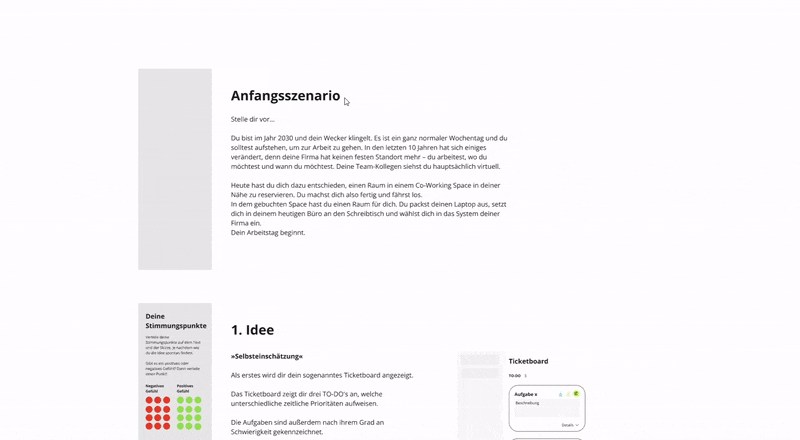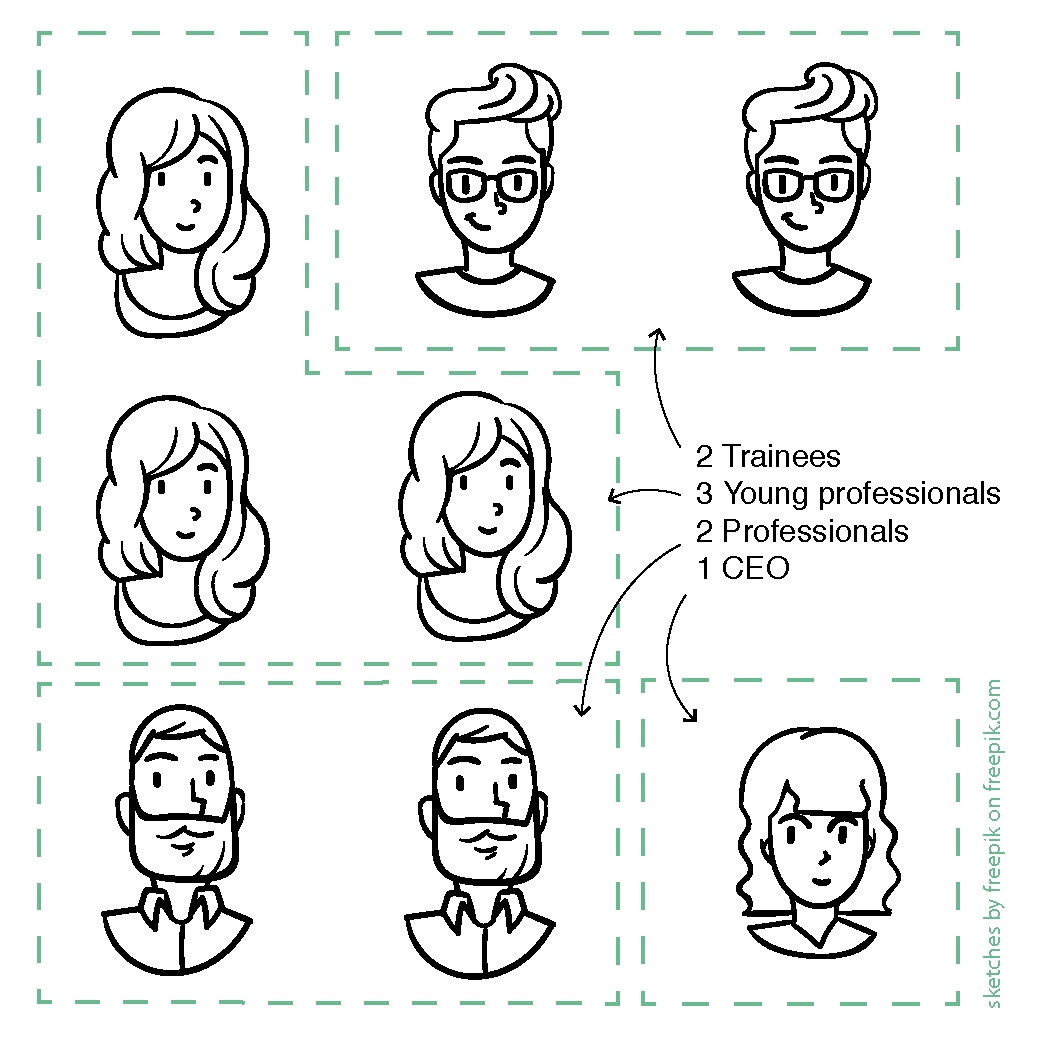In the current generation, our own values and the feeling of self-fullfillingness are becoming more important factors while choosing a place to work. Seeing that we’ll spend most of our lives working, the question of how we actually want to work gets increasingly asked.This project was assigned to the topic of self-efficiacy in order to evaluate how self-efficacy can be used to promote positive experiences at work. After intensive research, we therefore developed a prototype of a management tool and tested it with the help of the valence method and different kinds of employees.
What do employees say? Where do positive experiences arise and where perhaps negative ones? How do employees visualise work in the future?

... represents the individual belief in their capability to act in a way, so that specific goals can be reached. In other words: It's highly important to be able to believe in personal skills to feel confident at work. But how can self-efficacy be supported?
One of the fundamental theorists of self-efficacy, Albert Bandura, identified four ways to answer this question:
- own experiences
- Role-model experiences
- social and vocal pep talks
- physiological and emotional states

We build a prototype to improve self-efficiacy at work based on our research and evaluated it using the valence method.

1 State of the Art
Literature research, writing a 20-page research paper on the topic of self-efficacy
2 Draft of a Lofi-Prototype
Development of a prototype for testing positive expe riences through self-efficacy encouragement
3 Qualitative Interviews
Testing the prototype with the valence method & thinking aloud, as well as follow-up interviews
4 Conclusion
Preparation of the results as a presentation and paper.
Interested in details about our methodology or results?
- Concept of prototype
- Design and conduction of Interviews
- Analysing results
- Paper: Writing discussion and summary of results
This work was part of my studies in Information Design B.A.
Team members: 4
Time span: 5 months
Supervised by:
Prof. Dr. Michael Burmester